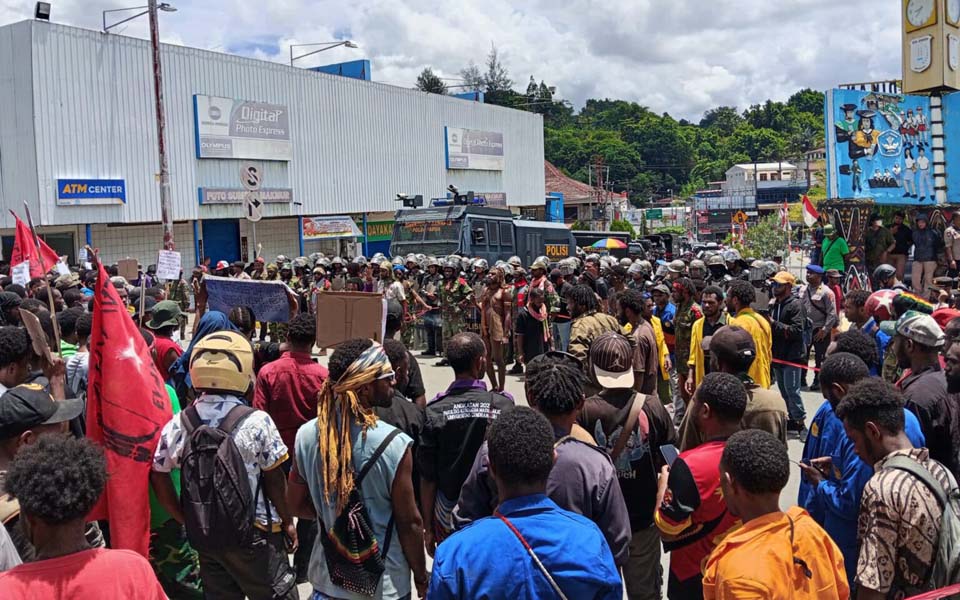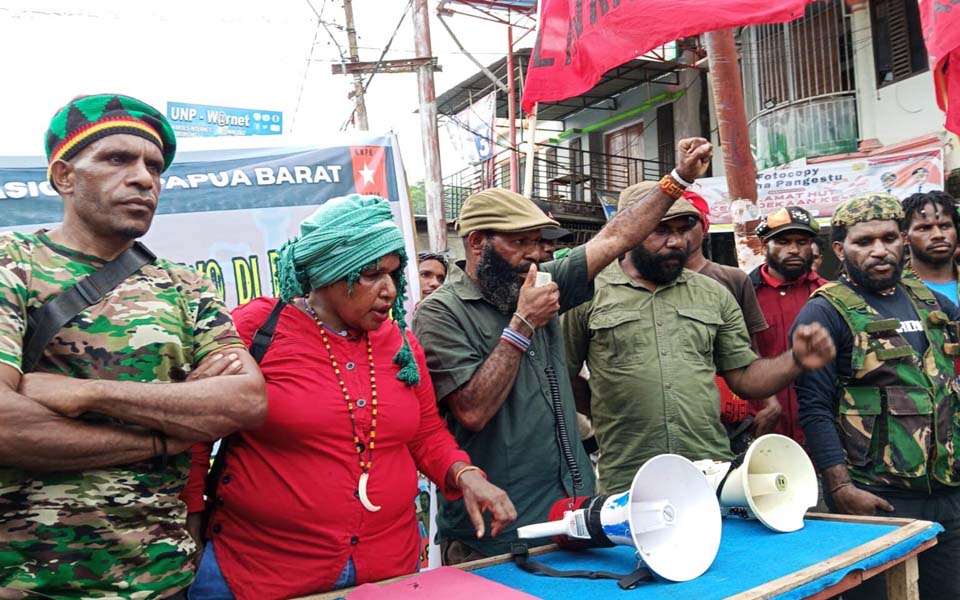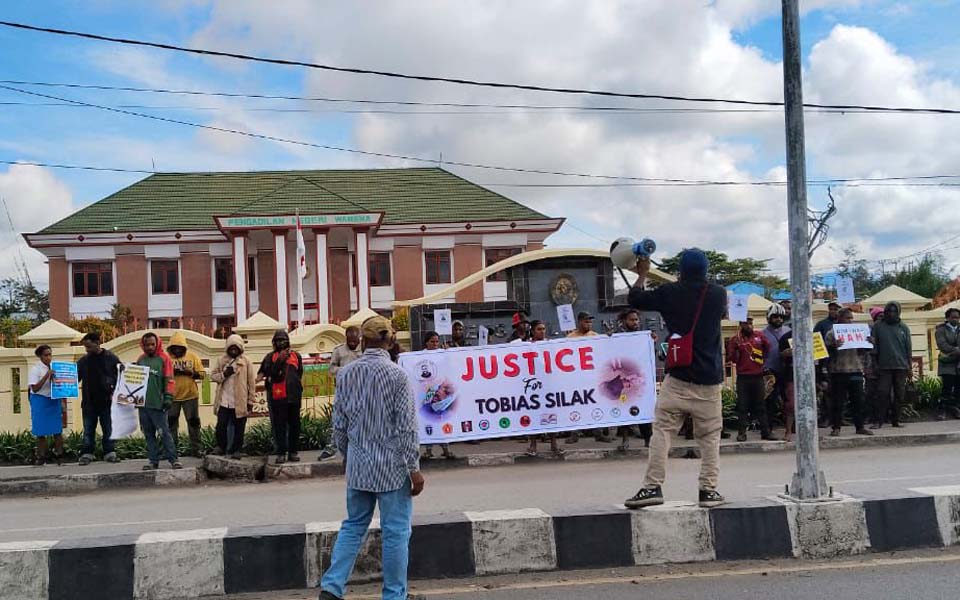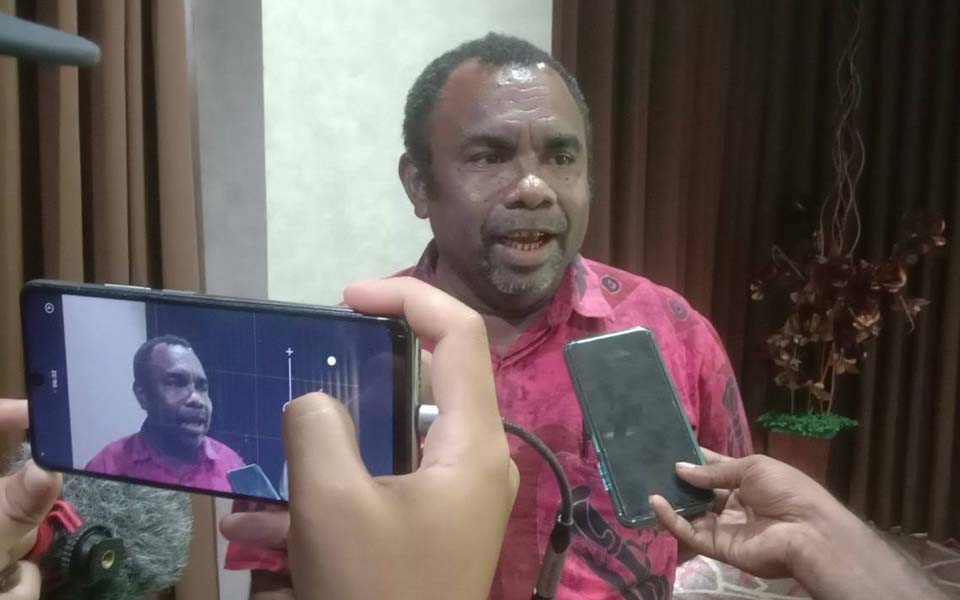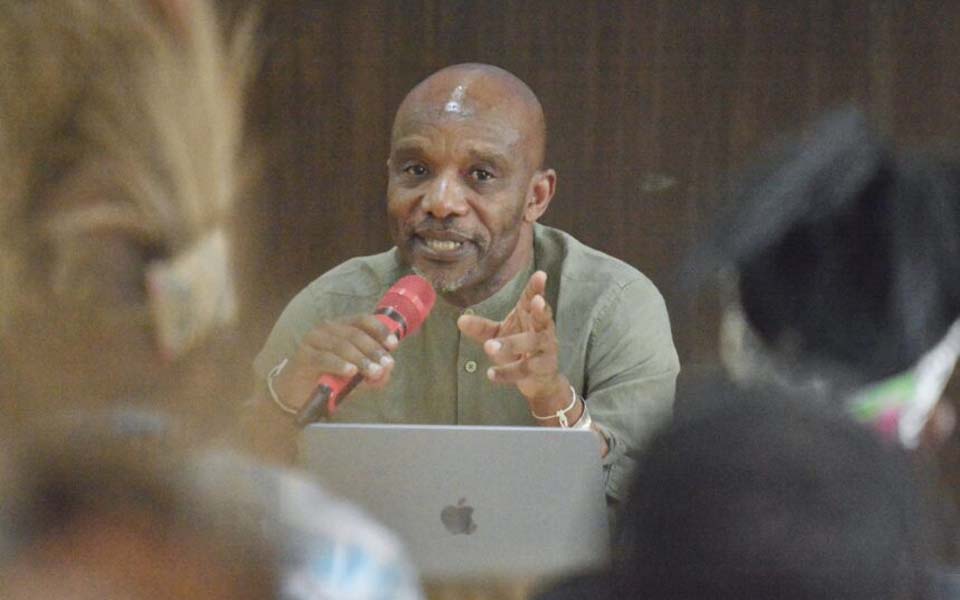Jakarta – The government is being urged to prioritize dialogue over a militaristic approach in resolving the Papua problem. It is precisely this militaristic approach that is provoking continued violence. Because of this therefore, violations of civilian human rights must stop.
“The Papua problem is extremely complex so the government must seriously prioritize dialogue with the Papuan people. The violation of civil and economic rights must be stopped along with the importance of enforcing the law against corruptions and officials who violate human rights”, said Indonesian Human Rights Watch (Imparsial) executive director Poengky Indarti in Jakarta on Tuesday August 8.
According to Poengky, the security approach in Papua should utilize the police as force in the front line. It would be preferable if the police utilize the Bimas (mass guidance) program in to approach the people.
Institute for Democracy and Peace (Setara Institute) deputy chairperson Bonar Tigor Naipospos said that in the long term, a dialogue must be conducted with all stakeholders. The security approach will still have to be used because armed groups still exist in parts of Papua. However there must be serious efforts to improve the bargaining position of the indigenous population who have been marginalized.
The security approach taken by the government is in fact perpetuating violence in Papua. Not only that, the military operations, in addition to the war being conducted by the TNI (Indonesian military), intelligence operations and the birth of groups believed to be formed by the military and the government, is further reinforcing the Papuan people’s wall of mistrust towards the Indonesian government.
Speaking in Jayapura, Papuan Central Highlands Indonesian Student Association (AMPTPI) secretary general Markus Haluk said that the position of the military post-reformasi (the reform process that began in 1998) should have changed. However the assassination of Papuan Presidium Council (PDP) chairperson Theys H. Eluay in 2001, which involved the military, indicates otherwise.
According to Papuan Traditional Council (DAP) chairperson Forkorus Yaboisembut, the military’s presence and intelligence operations in Papuan are in fact causing more suffering to the ordinary people. In many parts of Papua, it is more likely that people will encounter soldiers than teachers or healthcare workers. Most of their [the military’s] posts are located in residential areas.
The initiative to accommodate the Papuan people’s cultural aspirations, namely the DAP, is being disrupted by the existence of the Traditional Social Institute (LMA) formed by the government. “What was the thinking behind forming the LMA, after all the people already have the DAP. This means that it was only to create discord”, said Papuan human rights activist Pastor John Jonga Pr.
In fact an acute stigmatisation is attached to the Papuan people when they call for their political rights. Currently, there are 20 indigenous Papuan incarcerated in jails on charges of subversion. Because of this therefore, during the Papua Land of Peace conference indigenous Papuans agreed to an end to intelligence operations that are intimidating and create feelings of insecurity and for a reduction in the number of non-organic troops in Papua.
For them, a dialogue is the correct instrument to find a solution. “There is no need to be afraid of their demands. In a dialogue there is no one who is unable to talk. There is nothing that is nonnegotiable”, said Papua Peace Network (JDP) coordinator Neles Tebay. (JOS/END/RWN/FER/DIK/NTA/WHY/IAM)
Source: Persoalan Papua: Hentikan Pelanggaran Hak-hak Warga Sipil – Kompas. Selasa, 09 Agustus 2011
[Translated by James Balowski.]











